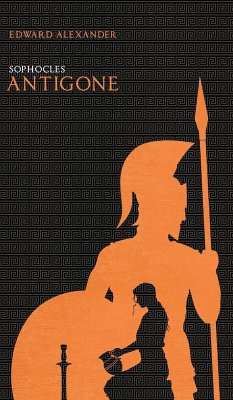
The Antigone Of Sophocles, With Notes
For The Use Of Colleges In The United States (1857)
Herausgeber: Woolsey, Theodore D.
Versandkostenfrei!
Versandfertig in 1-2 Wochen
23,99 €
inkl. MwSt.

PAYBACK Punkte
12 °P sammeln!
The Antigone of Sophocles, with Notes: For the Use of Colleges in the United States (1857) is a book that contains the famous Greek tragedy Antigone, written by Sophocles. The book is specifically designed for use in colleges in the United States and includes notes to aid in the understanding of the play. The play is set in ancient Thebes and follows the story of Antigone, the daughter of Oedipus, as she defies the king's order and buries her brother. The play explores themes such as justice, duty, and family loyalty. The notes provided in the book give historical context and explain the signi...
The Antigone of Sophocles, with Notes: For the Use of Colleges in the United States (1857) is a book that contains the famous Greek tragedy Antigone, written by Sophocles. The book is specifically designed for use in colleges in the United States and includes notes to aid in the understanding of the play. The play is set in ancient Thebes and follows the story of Antigone, the daughter of Oedipus, as she defies the king's order and buries her brother. The play explores themes such as justice, duty, and family loyalty. The notes provided in the book give historical context and explain the significance of certain passages in the play. This edition of Antigone is a valuable resource for students and scholars of Greek literature and drama.This scarce antiquarian book is a facsimile reprint of the old original and may contain some imperfections such as library marks and notations. Because we believe this work is culturally important, we have made it available as part of our commitment for protecting, preserving, and promoting the world's literature in affordable, high quality, modern editions, that are true to their original work.












